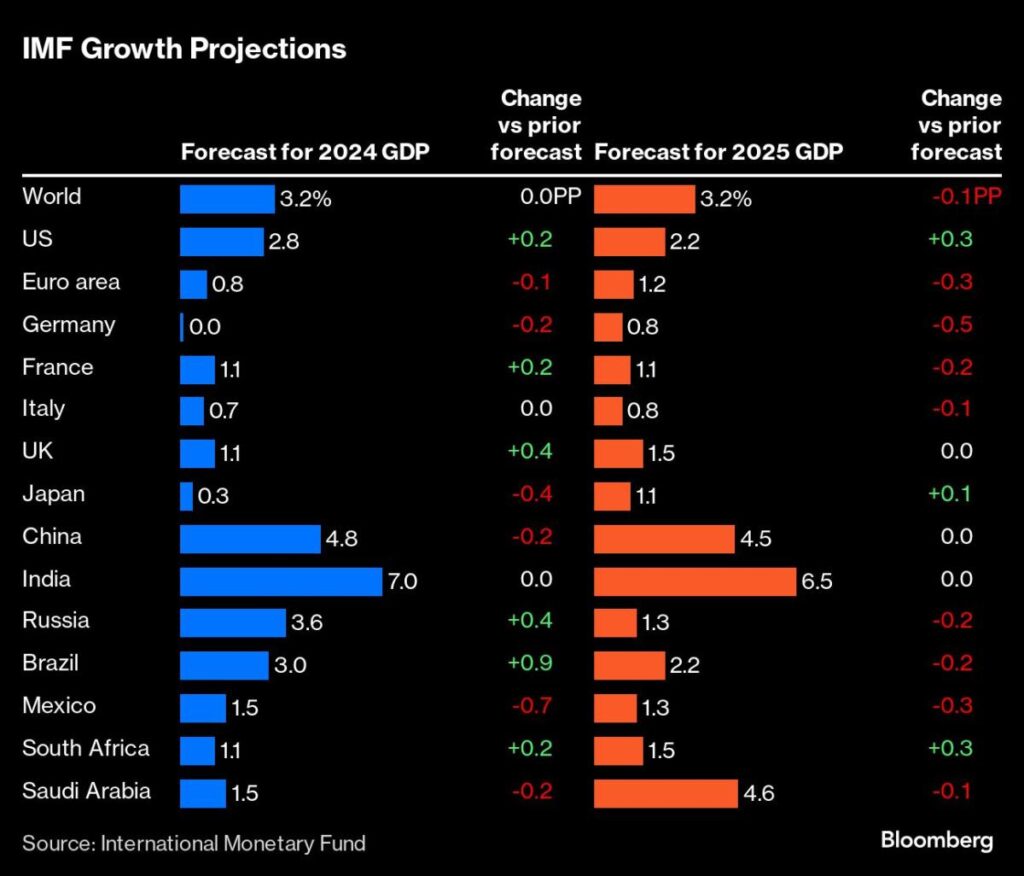During the recent Future Investment Initiative in Riyadh, a gathering reminiscent of Davos, prominent financial leaders expressed their optimism about the U.S. economy while voicing concerns regarding sluggish growth in Europe. Notable attendees, including Jane Fraser from Citigroup, Larry Fink from BlackRock, and David Solomon from Goldman Sachs, indicated that the U.S. economy has displayed resilience and is expected to continue its growth trajectory. Solomon noted that his base case assumes a “soft landing” for the U.S., a significant shift in sentiment compared to the post-COVID-19 pandemic period when fears of an impending recession loomed large among attendees. The International Monetary Fund (IMF) recently upgraded its prediction for U.S. economic growth to 2.8% for the year, contrasting sharply with much lower projections for the eurozone and the UK, which are eyed at just 0.8% and 1.1% respectively.
In light of these economic forecasts, executives at the conference discussed recent monetary policy changes, specifically focusing on the Federal Reserve’s decision to lower its benchmark interest rate by half a percentage point. This move marks an early indication of a policy shift aimed at supporting the U.S. labor market. However, when asked whether further rate cuts would occur this year, none of the executives, including heads of major financial institutions like Morgan Stanley and State Street Corp, raised their hands in agreement with the market’s speculation of two additional cuts. The consensus leaned towards the possibility of only one more reduction by the end of 2024, illustrating a reluctance to bet heavily on further monetary easing.
Despite the positive outlook on the U.S. economy, attendees raised concerns about various global issues, notably the lagging performance in Europe and geopolitical tensions. Bill Winters, CEO of Standard Chartered, stated that European corporate profits primarily stem from markets outside of the continent, which he described as a “structural problem.” Solomon echoed this sentiment, expressing heightened concern regarding Europe’s economic health and the situation in China. This perspective aligns with the IMF’s adjusted global growth forecast for 2025, which indicates escalating risks stemming from geopolitical conflicts, trade protectionism, and other economic uncertainties.
The ongoing conflicts in the Middle East and the protracted war between Russia and Ukraine added to the anxieties expressed by conference speakers. The uncertainty in financial markets was further exacerbated by the impending U.S. elections set for November 5, as Vice President Kamala Harris and former President Donald Trump are essentially in a statistical tie in polling. Ken Griffin, CEO of Citadel, noted that current sentiments lean toward a potential Trump victory, describing the situation as one of peak uncertainty, where outcomes seem nearly randomized.
The unpredictability of the upcoming election is a key factor that financial leaders believe will significantly influence monetary policy discussions. Solomon stated that making projections about U.S. monetary policy in 2025 is complicated without a clear understanding of potential policy changes that could follow the election. This predicament creates an environment of caution among investors and market players as they navigate the convergence of domestic political changes and international economic conditions.
In summary, while the Future Investment Initiative in Riyadh showcased an overall positive view of the U.S. economy’s prospects, it simultaneously highlighted serious concerns about economic stagnation in Europe, geopolitical instabilities, and the impact of the upcoming U.S. elections. Financial executives acknowledged the Fed’s proactive measures but remained discerning about the global landscape’s ramifications for growth in various sectors, underlining the complex interplay of these factors in shaping future investments and economic strategies.

